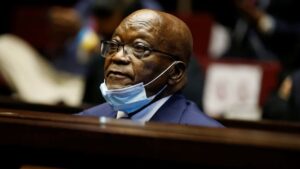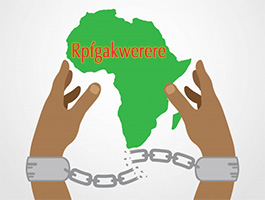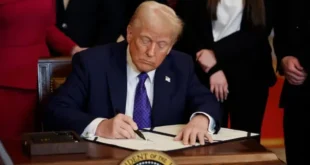By Lesley Wroughton and Max Bearak (Washington Post)
After months of brazenly defying court orders to appear in front of a sprawling corruption investigation spanning his nine years as president, South Africa’s top court ruled on Tuesday that Jacob Zuma was in contempt and handed him a 15-month prison sentence.
“Mr. Zuma was served with the order, and it is impossible to conclude anything other than that he was unequivocally aware of what it required of him,” acting Chief Justice Sisi Khampepe said.
“I would rather ensure that this society is one in which deference is shown to the rule of law, than continue to try, with what I know will be to no avail, to compel this most recalcitrant of individuals,” her ruling added. Zuma would be the first former South African leader to be imprisoned.
The Constitutional Court in Johannesburg gave Zuma, 79, five days to hand himself over to a police station in his hometown of Nkandla in KwaZulu-Natal province or in Johannesburg. A further three-day grace period would be allowed to elapse before he should be forcefully detained, the ruling stated.
Local news channels broadcasting from the Zuma family home in Nkandla showed a combustible situation, with fervent supporters vowing to prevent Zuma’s detention — but it was not clear Zuma was there, and his spokesman refused to comment on his whereabouts.
Zuma led South Africa for nearly a third of its post-apartheid history and was an associate of Nelson Mandela’s during the freedom struggle. But corruption had become so entrenched during his years in power that the allegations against him are known by the term “state capture” — when corruption is so deeply rooted that it practically controls policymaking.

The commission charged with investigating his 2009-2018 presidency has interviewed more than 250 witnesses and uncovered evidence that directly links Zuma to extensive “pay-to-play” schemes involving government contracts.
He is being prosecuted separately on charges of racketeering, corruption, fraud and money laundering stemming from a deal with a French arms manufacturer in which he allegedly took bribes while he was deputy president in 1999. That trial has been repeatedly postponed.
“He will have to go to prison. He has recognized for several months now that his legal options have run out and that his only hope was to cause some political crisis,” said Richard Calland, associate professor of public law at the University of Cape Town and author of “The Zuma Years,” a political history. “His intention now is to go to prison and in doing so to create a kind of political victimhood, even martyrdom around his incarceration.”
Zuma retains a large level of grass-roots support, especially among the Zulu ethnic group in his native KwaZulu-Natal province. He lost an internal party election of the ruling African National Congress to current president Cyril Ramaphosa in 2017 after a bitter internal battle nearly split the storied liberation party in two. Ramaphosa was subsequently elected president in a national vote in 2019.
Ramaphosa campaigned partly on an anti-corruption platform, playing up many South Africans’ exasperation at perceived impunity within the ANC, and has since fired ministers and heads of state-owned institutions that he asserted were being mismanaged and taken aim at top officials within the party, forcing them to step down and face charges similar to Zuma’s.
The reformist faction of the ANC, led by Ramaphosa, “will privately and quietly welcome this decision because what it does is underline the importance of accountability versus impunity,” Calland said.
 Africa Just another WordPress site
Africa Just another WordPress site


